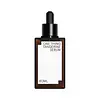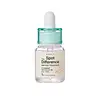What's inside
What's inside
 Key Ingredients
Key Ingredients

 Benefits
Benefits

 Concerns
Concerns

No concerns
 Ingredients Side-by-side
Ingredients Side-by-side

Water
Skin ConditioningDiglycerin
HumectantPolyglycerin-3
HumectantButylene Glycol
HumectantGlycerin
HumectantNiacinamide
Smoothing1,2-Hexanediol
Skin ConditioningCitrus Unshiu Peel Extract
MaskingTrehalose
HumectantAcrylates/C10-30 Alkyl Acrylate Crosspolymer
Emulsion StabilisingSodium Hyaluronate
HumectantPropanediol
SolventPolyglyceryl-10 Laurate
Skin ConditioningAllantoin
Skin ConditioningSodium Citrate
BufferingEthylhexylglycerin
Skin ConditioningCitric Acid
BufferingXanthan Gum
EmulsifyingGlyceryl Acrylate/Acrylic Acid Copolymer
HumectantDisodium EDTA
Pvm/Ma Copolymer
Emulsion StabilisingHydroxypropyltrimonium Hyaluronate
Sodium Acetylated Hyaluronate
HumectantHydrolyzed Hyaluronic Acid
HumectantHyaluronic Acid
HumectantSodium Hyaluronate Crosspolymer
HumectantHydrolyzed Sodium Hyaluronate
Skin ConditioningPotassium Hyaluronate
Skin ConditioningWater, Diglycerin, Polyglycerin-3, Butylene Glycol, Glycerin, Niacinamide, 1,2-Hexanediol, Citrus Unshiu Peel Extract, Trehalose, Acrylates/C10-30 Alkyl Acrylate Crosspolymer, Sodium Hyaluronate, Propanediol, Polyglyceryl-10 Laurate, Allantoin, Sodium Citrate, Ethylhexylglycerin, Citric Acid, Xanthan Gum, Glyceryl Acrylate/Acrylic Acid Copolymer, Disodium EDTA, Pvm/Ma Copolymer, Hydroxypropyltrimonium Hyaluronate, Sodium Acetylated Hyaluronate, Hydrolyzed Hyaluronic Acid, Hyaluronic Acid, Sodium Hyaluronate Crosspolymer, Hydrolyzed Sodium Hyaluronate, Potassium Hyaluronate
Water
Skin ConditioningGlycerin
HumectantPropanediol
Solvent1,2-Hexanediol
Skin ConditioningGlycereth-26
HumectantNiacinamide
SmoothingCaprylic/Capric Triglyceride
MaskingAloe Barbadensis Leaf Extract
EmollientAlthaea Rosea Flower Extract
Skin ConditioningLaminaria Japonica Extract
Skin ProtectingEclipta Prostrata Leaf Extract
Skin ConditioningCentella Asiatica Extract
CleansingFicus Carica Fruit Extract
HumectantUlmus Davidiana Root Extract
Skin ConditioningAmaranthus Caudatus Seed Extract
Skin ConditioningCamellia Sinensis Leaf Extract
AntimicrobialMonarda Didyma Leaf Extract
Skin ConditioningHydrangea Macrophylla Leaf Extract
Skin ConditioningMentha Aquatica Extract
TonicSasa Quelpaertensis Extract
Skin ConditioningMelaleuca Alternifolia Leaf Extract
PerfumingMelia Azadirachta Leaf Extract
Skin ConditioningEclipta Prostrata Extract
Skin ConditioningCinnamomum Camphora Leaf Extract
MaskingCryptomeria Japonica Leaf Extract
HumectantPinus Pinaster Bark/Bud Extract
AntimicrobialRosmarinus Officinalis Leaf Oil
MaskingHydrogenated Lecithin
EmulsifyingChamaecyparis Obtusa Water
MaskingTrehalose
HumectantOctyldodeceth-16
EmulsifyingAcrylates/C10-30 Alkyl Acrylate Crosspolymer
Emulsion StabilisingTromethamine
BufferingC12-14 Pareth-12
EmulsifyingButylene Glycol
HumectantXanthan Gum
EmulsifyingDisodium EDTA
Ceramide NP
Skin ConditioningFructooligosaccharides
HumectantBeta-Glucan
Skin ConditioningHydrolyzed Hyaluronic Acid
Humectant4-Terpineol
MaskingGlycyrrhiza Glabra Rhizome/Root
EmollientMoringa Oleifera Seed Oil
EmollientGlycolic Acid
BufferingSalicylic Acid
MaskingEthylhexylglycerin
Skin ConditioningWater, Glycerin, Propanediol, 1,2-Hexanediol, Glycereth-26, Niacinamide, Caprylic/Capric Triglyceride, Aloe Barbadensis Leaf Extract, Althaea Rosea Flower Extract, Laminaria Japonica Extract, Eclipta Prostrata Leaf Extract, Centella Asiatica Extract, Ficus Carica Fruit Extract, Ulmus Davidiana Root Extract, Amaranthus Caudatus Seed Extract, Camellia Sinensis Leaf Extract, Monarda Didyma Leaf Extract, Hydrangea Macrophylla Leaf Extract, Mentha Aquatica Extract, Sasa Quelpaertensis Extract, Melaleuca Alternifolia Leaf Extract, Melia Azadirachta Leaf Extract, Eclipta Prostrata Extract, Cinnamomum Camphora Leaf Extract, Cryptomeria Japonica Leaf Extract, Pinus Pinaster Bark/Bud Extract, Rosmarinus Officinalis Leaf Oil, Hydrogenated Lecithin, Chamaecyparis Obtusa Water, Trehalose, Octyldodeceth-16, Acrylates/C10-30 Alkyl Acrylate Crosspolymer, Tromethamine, C12-14 Pareth-12, Butylene Glycol, Xanthan Gum, Disodium EDTA, Ceramide NP, Fructooligosaccharides, Beta-Glucan, Hydrolyzed Hyaluronic Acid, 4-Terpineol, Glycyrrhiza Glabra Rhizome/Root, Moringa Oleifera Seed Oil, Glycolic Acid, Salicylic Acid, Ethylhexylglycerin
 Reviews
Reviews

Ingredients Explained
These ingredients are found in both products.
Ingredients higher up in an ingredient list are typically present in a larger amount.
1,2-Hexanediol is a synthetic liquid and another multi-functional powerhouse.
It is a:
- Humectant, drawing moisture into the skin
- Emollient, helping to soften skin
- Solvent, dispersing and stabilizing formulas
- Preservative booster, enhancing the antimicrobial activity of other preservatives
Acrylates/C10-30 Alkyl Acrylate Crosspolymer is a synthetic polymer. It is used to thicken and improve the texture of products. Due to its properties, it can prevent water and oil ingredients from separating.
Butylene Glycol (or BG) is used within cosmetic products for a few different reasons:
Overall, Butylene Glycol is a safe and well-rounded ingredient that works well with other ingredients.
Though this ingredient works well with most skin types, some people with sensitive skin may experience a reaction such as allergic rashes, closed comedones, or itchiness.
Learn more about Butylene GlycolDisodium EDTA plays a role in making products more stable by aiding other preservatives.
It is a chelating agent, meaning it neutralizes metal ions that may be found in a product.
Disodium EDTA is a salt of edetic acid and is found to be safe in cosmetic ingredients.
Learn more about Disodium EDTAEthylhexylglycerin (we can't pronounce this either) is commonly used as a preservative and skin softener. It is derived from glyceryl.
You might see Ethylhexylglycerin often paired with other preservatives such as phenoxyethanol. Ethylhexylglycerin has been found to increase the effectiveness of these other preservatives.
Glycerin is already naturally found in your skin. It helps moisturize and protect your skin.
A study from 2016 found glycerin to be more effective as a humectant than AHAs and hyaluronic acid.
As a humectant, it helps the skin stay hydrated by pulling moisture to your skin. The low molecular weight of glycerin allows it to pull moisture into the deeper layers of your skin.
Hydrated skin improves your skin barrier; Your skin barrier helps protect against irritants and bacteria.
Glycerin has also been found to have antimicrobial and antiviral properties. Due to these properties, glycerin is often used in wound and burn treatments.
In cosmetics, glycerin is usually derived from plants such as soybean or palm. However, it can also be sourced from animals, such as tallow or animal fat.
This ingredient is organic, colorless, odorless, and non-toxic.
Glycerin is the name for this ingredient in American English. British English uses Glycerol/Glycerine.
Learn more about GlycerinHydrolyzed Hyaluronic Acid is a form of hyaluronic acid. It is created by the hydrolysis of hyaluronic acid with a high molecular weight. Once created, Hydrolyzed Hyaluronic Acid has a low molecular weight.
Low molecular weight HA has been shown to hydrate and increase elasticity of the skin. Increasing elasticity is also associated with reduction of wrinkle depth.
One study found topical low molecular weight hyaluronic acid may be considered for the treatment of rosacea in the adult population. However, we always recommend speaking with a professional about your skin concerns.
Hyaluronic acids are a humectant. This means they draw moisture from the air. Hyaluronic acids help moisturize, soothe, and protect the skin.
Read more about other common forms of hyaluronic acid:
Learn more about Hydrolyzed Hyaluronic AcidNiacinamide is a multitasking form of vitamin B3 that strengthens the skin barrier, reduces pores and dark spots, regulates oil, and improves signs of aging.
And the best part? It's gentle and well-tolerated by most skin types, including sensitive and reactive skin.
You might have heard of "niacin flush", or the reddening of skin that causes itchiness. Niacinamide has not been found to cause this.
In very rare cases, some individuals may not be able to tolerate niacinamide at all or experience an allergic reaction to it.
If you are experiencing flaking, irritation, and dryness with this ingredient, be sure to double check all your products as this ingredient can be found in all categories of skincare.
When incorporating niacinamide into your routine, look out for concentration amounts. Typically, 5% niacinamide provides benefits such as fading dark spots. However, if you have sensitive skin, it is better to begin with a smaller concentration.
When you apply niacinamide to your skin, your body converts it into nicotinamide adenine dinucleotide (NAD). NAD is an essential coenzyme that is already found in your cells as "fuel" and powers countless biological processes.
In your skin, NAD helps repair cell damage, produce new healthy cells, support collagen production, strengthen the skin barrier, and fight environmental stressors (like UV and pollution).
Our natural NAD levels start to decline with age, leading to slower skin repair, visible aging, and a weaker skin barrier. By providing your skin niacinamide, you're recharging your skin's NAD levels. This leads to stronger, healthier, and younger looking skin.
Another name for vitamin B3 is nicotinamide. This vitamin is water-soluble and our bodies don't store it. We obtain Vitamin B3 from either food or skincare. Meat, fish, wheat, yeast, and leafy greens contain vitamin B3.
The type of niacinamide used in skincare is synthetically created.
Learn more about NiacinamidePropanediol is an all-star ingredient. It softens, hydrates, and smooths the skin.
It’s often used to:
Propanediol is not likely to cause sensitivity and considered safe to use. It is derived from corn or petroleum with a clear color and no scent.
Learn more about PropanediolTrehalose is a disaccharide made of two glucose molecules (glucose is sugar!). Trehalose is used to help moisturize skin. It also has antioxidant properties.
As a humectant, trehalose helps draw moisture from the air to your skin. This helps keep your skin hydrated.
Due to its antioxidant properties, trehalose may help with signs of aging. Antioxidants help fight free-radical molecules, unstable molecules that may damage your skin.
In medicine, trehalose and hyaluronic acid are used to help treat dry eyes.
Some animals, plants, and bacteria create trehalose as a source of energy to survive freeze or lack of water.
Learn more about TrehaloseWater. It's the most common cosmetic ingredient of all. You'll usually see it at the top of ingredient lists, meaning that it makes up the largest part of the product.
So why is it so popular? Water most often acts as a solvent - this means that it helps dissolve other ingredients into the formulation.
You'll also recognize water as that liquid we all need to stay alive. If you see this, drink a glass of water. Stay hydrated!
Learn more about WaterXanthan gum is used as a stabilizer and thickener within cosmetic products. It helps give products a sticky, thick feeling - preventing them from being too runny.
On the technical side of things, xanthan gum is a polysaccharide - a combination consisting of multiple sugar molecules bonded together.
Xanthan gum is a pretty common and great ingredient. It is a natural, non-toxic, non-irritating ingredient that is also commonly used in food products.
Learn more about Xanthan Gum